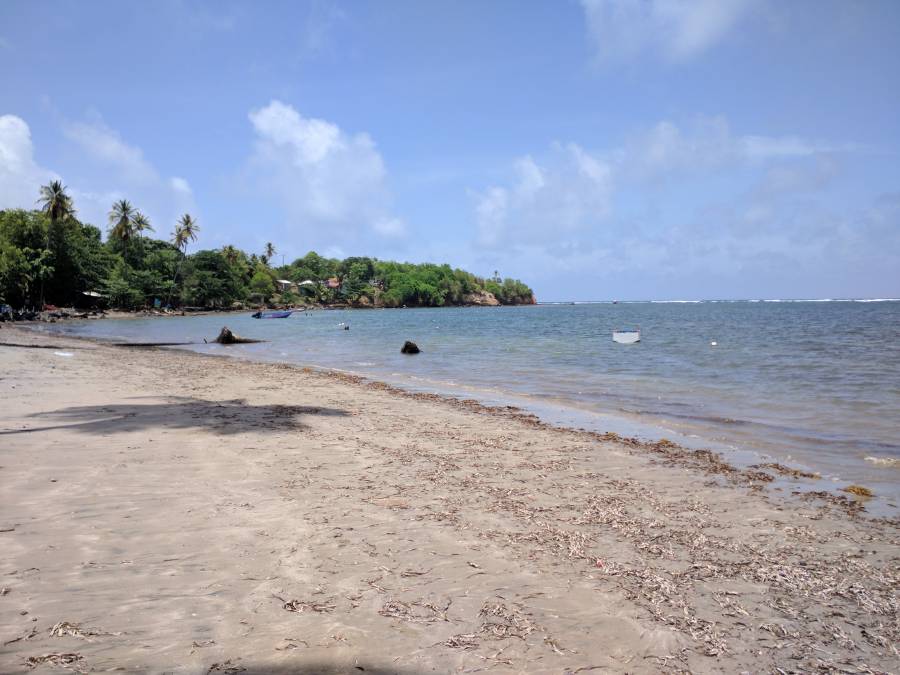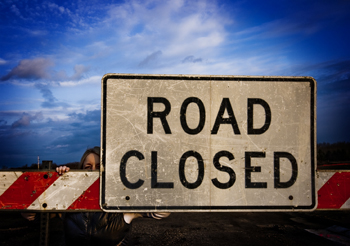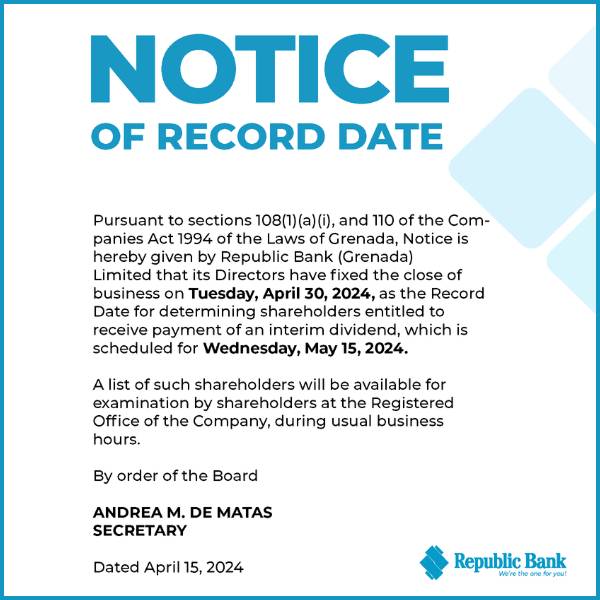by Curlan Campbell, NOW Grenada
- People to evacuate coastal areas immediately once a strong earthquake is felt
- Alerts issued by NaDMA may not be released in time
- NaDMA encourages homes and business to comprehensive disaster management plan
Following yesterday’s aftershock, 24 km from Rio Caribe, Sucre, Venezuela at around 9:27am measuring 5.9 on the Richter scale, Sylvan McIntyre, Acting Disaster Coordinator, for the National Disaster Management Agency (NaDMA) saw it necessary to address the public on matters regarding earthquake and tsunami precautions that must be followed in case of an emergency.
The aftershock was as a result of a massive 7.3 magnitude earthquake which occurred 47 km from Carupano, Sucre, Venezuela on 21 August 2018, at around 5:31 pm.
In speaking to people living directly near the coastal areas, Mc Intyre cautioned people to follow basic safety procedure by evacuating the coastal area immediately once a strong earthquake is felt. He said this is necessary since tsunami alerts issued by NaDMA may not be released in time as the information must go through a number of channels before it can be issued by the agency.
“People are advised that once you feel a strong earthquake if you are on low-lying areas, you may not get a warning from the National Disaster Management Agency or from any other authentic source in time for that matter, but if you feel a strong shaking the advice is to head to higher grounds. There is a protocol that exists with ourselves, the United States Geological Survey and the UWI Seismic Research Centre, St Augustine in Trinidad which will send us the warning, but the process sometimes may be slow and we know that tsunamis move at supersonic speeds and this is why it is important to have the information and training before so that people can understand what to do.”
NaDMA is encouraging homes and business to have a comprehensive disaster management plan in the likely event of an emergency.
“We have always advocated comprehensive disaster management. You prepare at all times with all sectors for all events, so in the middle of the hurricane season we can be dealing with everything else, so it reiterates the need for us as a nation to continue to listen to NaDMA. If you do not have a training schedule as part of your staff development or for your own home, now is the time to do that. We are available to provide technical support.”
The Civil Society Organisation has also issued a release with the title “What to do in an earthquake” detailing the correct procedure that should be followed by people in the event of an earthquake.
What to do in an earthquake
If you are indoors during an earthquake, ensure you do the following if you are indoors during an earthquake:
- DROP to the ground; take COVER by getting under a sturdy table or another piece of furniture; and HOLD ON until the shaking stops. If there isn’t a table or desk near you, cover your face and head with your arms and crouch in an inside corner of the building.
- Stay away from glass, windows, outside doors and walls, and anything that could fall, such as lighting fixtures or furniture.
- Stay in bed if you are there when the earthquake strikes. Hold on and protect your head with a pillow, unless you are under a heavy light fixture that could fall. In that case, move to the nearest safe place.
- Do not use a doorway except if you know it is a strongly supported, load-bearing doorway and it is close to you. Many inside doorways are lightly constructed and do not offer protection.
- Stay inside until the shaking stops and it is safe to go outside. Do not exit a building during the shaking. Research has shown that most injuries occur when people inside buildings attempt to move to a different location inside the building or try to leave.
- DO NOT use the elevators.
- Be aware that the electricity may go out or the sprinkler systems or fire alarms may turn on.
If you are outdoors during an earthquake
Ensure you do the following if you are outdoors during an earthquake:
- Stay there.
- Move away from buildings, streetlights, and utility wires.
- Once in the open, stay there until the shaking stops. The greatest danger exists directly outside buildings, at exits, and alongside exterior walls.
- If you are in a moving vehicle during an earthquake
- Ensure you do the following if you are in a moving vehicle during an earthquake:
- Stop as quickly as safety permits and stay in the vehicle. Avoid stopping near or under buildings, trees, overpasses, and utility wires.
- Proceed cautiously once the earthquake has stopped. Avoid roads, bridges, or ramps that might have been damaged by the earthquake.
- If you are trapped under debris
- Ensure you do the following if you are trapped under debris during or after an earthquake:
- Do not light a match.
- Do not move around or kick up dust.
- Cover your mouth with a handkerchief or clothing.
- Tap on a pipe or wall so rescuers can locate you. Use a whistle if one is available. Shout only as a last resort. Shouting can cause you to inhale dangerous amounts of dust.
























